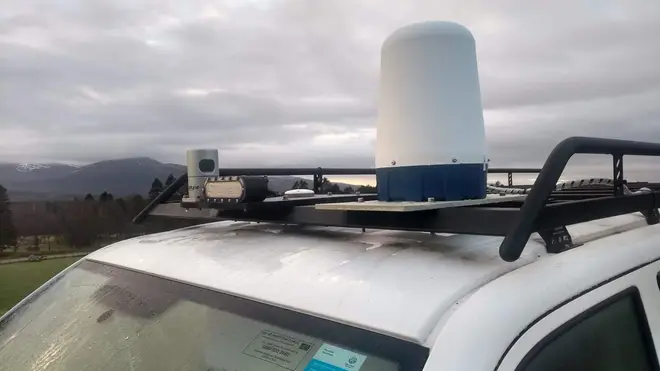
Ben Kentish 10pm - 1am
9 August 2021, 00:04

The university said the data collected will be valuable to manufacturers of driverless vehicles.
Self-driving cars will be able to navigate better in bad weather and on dark nights thanks to data collected by two researchers driving a car around the Scottish Highlands, according to Heriot-Watt University.
Professor Andrew Wallace and Dr Sen Wang chased rain, snow and fog around the rural northern roads and the urban sprawl of Edinburgh to gather the data.
They kitted out a van with light detection and ranging (LiDAR) radar, stereo cameras and geo-positioning devices.
It produced a new dataset of three hours of radar images and 200,000 tagged road objects including other vehicles and pedestrians.
The university said the information will be valuable to manufacturers and researchers of driverless vehicles as most public data currently available is based on sunny, clear days.
It has also relied mainly on data collected from optical sensors, which does not work as well during bad weather.
Dr Wang said: “When a car pulls out in front of you, you try to predict what it will do – will it swerve, will it take off? That’s what autonomous vehicles will have to do, and now we have a database that can put them on that path, even in bad weather.”
Prof Wallace said: “Datasets are essential to develop and benchmark perception systems for autonomous vehicles.
“We’re many years from driverless cars being on the streets, but autonomous vehicles are already being used in controlled circumstances or piloting areas.
“We’ve shown that radar can help autonomous vehicles to navigate, map and interpret their environment in bad weather, when vision and LiDAR can fail.”
He added: “We need to improve the resolution of the radar, which is naturally fuzzy.
“If we can combine hi-res optical images with the weather-penetrating capability of enhanced radar that takes us closer to autonomous vehicles being able to see and map better, and ultimately navigate more safely.”